We Will Remember - webmaster
This website is about remembering - not just our dead [but only we and those close to them will actively do this] but also
about those who returned. It seems to many [and the
RNZRSA apology supports this view] that after
Vietnam finished for us not only our dead were to be forgotten but also our service, and our campaign. It has been a
struggle but many veterans did not accept that we should be forgotten when we were shunned by those who should have known
better. There is evidence of this determination bearing fruit in events like
Tribute08 and the MOU, so that today we do have our dead respected, our service
acknowledged, and our campaign added to war memorials across the country. To those of you who never forgot and who
persevered in getting these glaring errors resolved, you are owed a debt of heartfelt gratitude by all veterans and their
families.
Where applicable stories that demonstrate this determination will be added to
this page. In doing so it may be necessary for some veterans to re-examine their long-held beliefs about the treatment
they received. |
“He was getting old
and paunchy and his hair was falling fast,
And he sat around the RSA, telling stories of the past.
Of a war that he once fought in and the deeds that he had done,
In his exploits with his mates; they were heroes, every one.
And ‘tho sometimes to his neighbours, his tales became a joke,
All his mates listened quietly for they knew where of he spoke.
But we’ll hear his tales no longer, for ol’ Jack has passed
away,
And the world’s a little poorer for an ANZAC died today.
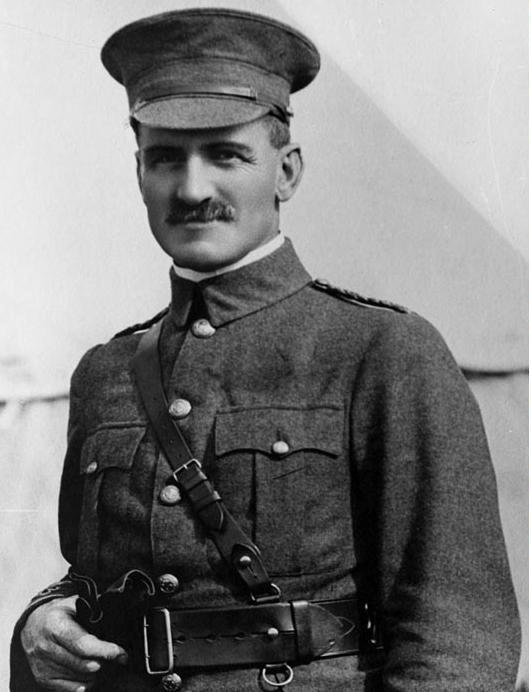
He won’t be mourned by many, just his children and his wife.
For he lived an ordinary, very quiet sort of life.
He held a job and raised a family, going quietly on his way;
And the world won’t note his passing, tho’ an ANZAC died today.
When politicians leave this earth, their bodies lie in state,
While thousands note their passing, and proclaim that they were
great.
The Media tell of their life stories from the time that they
were young,
But the passing of an ANZAC, goes unnoticed, and unsung.
Is the greatest contribution to the welfare of our land,
Some smoothie who breaks his promise and cons his fellow man?
Or the ordinary fellow who in times of war and strife,
Goes off to serve his country and offers up his life?
The politician’s stipend and the style in which they live,
Are often disproportionate, to the service that they give.
While the ordinary ANZAC, who offered up his all,
Is paid off with a medal and perhaps a pension, small.
It is not the politicians with their compromise and ploys,
Who won for us the freedom that our country now enjoys.
Should you find yourself in danger, with your enemies at hand,
Would you really want some cop-out, with his ever-waffling
stand?
Or would you want an ANZAC, his home, his country, his kin,
Just a common soldier, who would fight until the end?
He was a worthy ANZAC, and his ranks are growing thin,
But his presence should remind us we may need his likes again.
For when our countries are in conflict, we find the ANZAC’s
part,
Is to clean up all the troubles that the politicians start.
If we cannot do him honour while he’s here to enjoy the praise,
Then at least let’s give him homage at the ending of his days.
Perhaps just a simple headline in the paper that might say:
“OUR COUNTRY IS IN MOURNING, AN ANZAC DIED TODAY"
[one version of many - not able to be attributed] |
My Experience - Rex Alexander
[V6]
I listened with sadness to the stories of the treatment of Vietnam veterans on their
return home; specifically their treatment at their local RSA's. I consider myself very fortunate. Before leaving
for service overseas, I had accompanied my father to our local RSA in Timaru on a number of occasions, very much underage.
The club was men only as was common back then. In 1969 there was a Gallipoli Corner with as I recall 6 - 8 Gallipoli
veterans plus one or two others who had served in WW1 and were tolerated (just) by those of the 1915 landings. They
would have ranged in age from early to late 70's; ancient to a 19 year old. They never spoke to the WW2 veterans who
made up the majority of the membership and always remained in their corner surrounded by memorabilia and photographs.
Whenever one of them approached the bar, Stan the barman and club president [a WW2
returned man] always served them first; it was just the done thing. My father was a sergeant in 3 platoon, C Company
23rd Battalion who had served in Syria, North Africa and Italy. He was at El Alamein and Monte Casino. I like to
think it was out of respect for him that prior to my departure, one of the Gallipoli vets approached my father saying they
wanted to talk to me (actually demanded). I got some awesome advice from a group of legends. The only piece I
remember now being from one who never seemed to sit still for long; he was always the one who got the drinks from the bar.
His advice was; "occasionally it is necessary, even important to stick your head above the parapet. Don't worry about
that" he said; "head shots are painless - we have seen more than a few - it's more important to keep your bum down. I
know, I am still in pain over 50 years later." On my return from Vietnam they again asked to speak to me. They sat
me down, didn't ask questions, just said: talk to us. I did, left nothing out, there was no bullsh***g these guys.
At the end one of them who had never said anything to me at either session called the barman over and said "Stan, process this
man's membership application." They never spoke to me again, but then since they never spoke to anyone, I felt very
included.
|

![Carillion National War Memorial Wellington - Vietnam Niche with the Maori canoe [waka wairua] symbolising the tapu-lifting [whakanoa] & bringing the spirits of those who died in SVN, home to rest with family/whanau. After resting in the Carillion the waka wairua is now in the Gallipoli Room, ANZAC House the NZRSA headquarters [Young]](images/Citadel1_Vietnam_small.jpg) from these two verses:
from these two verses:
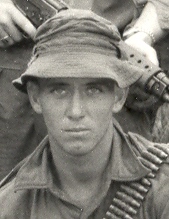
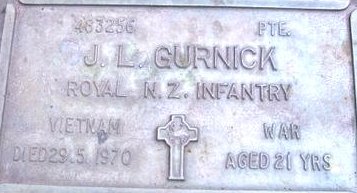
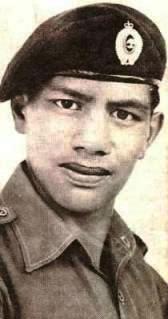
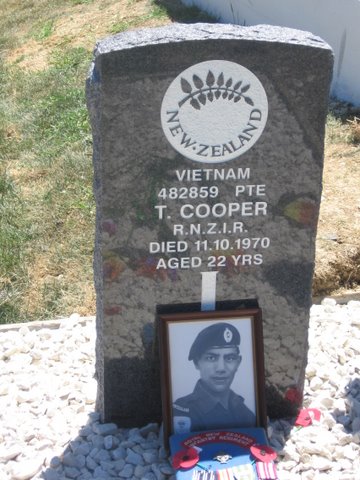
!["At the going down of the sun, and in the morning, we will remember them...!' sunset over Phouc Thuy province Vietnam 1970 [Stock]](images/sunset_small.jpg)
